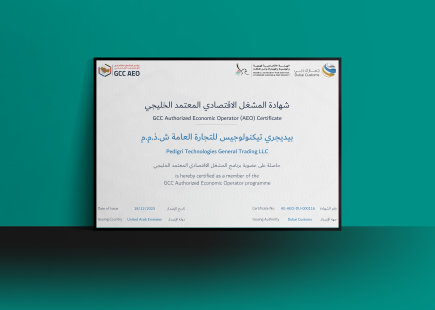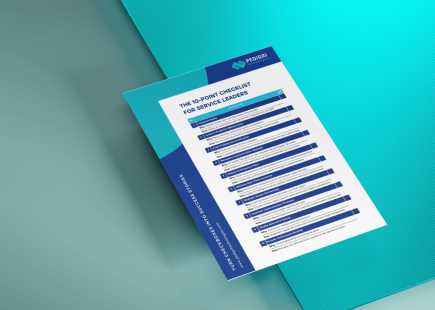How Can Service Supply Chain Costs Be Reduced for Time-Critical Equipment?
27 June, 2022Supply chain management, particularly for high-value equipment and spare parts imported into the MEA region, has grown dramatically over the past 20 years.

While the demand continues to grow, manufacturers are not always able to meet customer demands in a timely and efficient manner. Throw in the dramatically evolving landscape of the post-COVID-19 pandemic and the subsequent supply chain disruptions, coupled with the impact of recent geopolitical events, and the cost associated with importing high-value equipment and service spare parts has drastically increased. In this article, we’ll explore a few ways your company can reduce costs when importing high-value equipment and spare parts.
How to determine which supply chain hiccups are costing you the most
The step in reducing supply chain costs is determining which aspects of your supply chain are bleeding money. Start by taking a good look at your supply chain process.
- Are you paying demurrages because your high-value equipment is being stalled at customs?
- Do you need to pay for equipment repairs that have been damaged during the shipment process?
- Or perhaps your import process time is too long to meet your field support SLAs?
Once you determine where you don’t have control over your spending, you can plan to cut back the costs associated with these aspects of your supply chain.
Key areas to reduce supply chain costs for time-critical equipment & spare parts
Regardless of your industry, there are several key areas your business can focus on to reduce supply chain costs for your high-value equipment and spare parts.
Shipping Costs
The bulk of your supply chain costs is allocated to the shipping of your time-critical equipment. Finding a reliable and affordable last-mile delivery carrier for your time-critical equipment may feel like an ongoing process. Still, it’s worth your time to ensure you are getting the best rates to deliver and distribute your products and spare parts. It’s also important to diversify your logistics services. Not only does it foster more connections across your supply chain, but failing to do so can put your business at risk if your carrier becomes unreliable or if they suddenly increase prices. We recommend running a competitive analysis of your logistics partners regularly. This will not only help to ensure you’re getting the best prices but also keeps the lines of communication open with your current logistics partners.
Customs
If your business imports high-value equipment and or mission-critical parts into the MENA region, you’re fully aware of how complex the customs process can be. International trading presents a wide range of challenges ranging from regulations to compliance concerns. Learning to navigate this complex process can prove very time-consuming, and a simple mistake or oversight can cause long and costly delays in your high-value equipment supply chain.
To avoid these costly customs hiccups, we recommend partnering with an experienced Importer of Record (IOR). An IOR has the knowledge to ensure your company is compliant with import regulations in any given country. They will also handle paying all related taxes and duties associated with imported goods and are responsible for filing all permits, documentation, and licenses for imported goods. In the long run, the initial investment of an IOR will save you a great deal of time and money associated with costly mistakes.
Storage & Warehousing
Now that you’ve tackled customs and delivery, it’s time to look at your storage costs. If your company is paying a great deal for storage every month, you need to ask yourself why? Are you overordering? Are you not able to turn around your inventory in a timely manner? Perhaps you are experiencing delays in importing your inventory from country to country. The first step in streamlining costs associated with storage is to determine the need for local inventory holding.
Ultimately, high storage costs mean you have either excess inventory onsite or you are paying for the space you are not using. When you’re dealing with high-value equipment and spare parts, the last thing you want is your inventory sitting around unused as it gets written off. Not only is it costly in terms of storage fees, but it’s also costly in terms of working capital.
Inventory Management
Inventory is a huge cost driver when seeking to minimize supply chain costs for high-value equipment. To keep these costs manageable, you must determine the right mix and quantity of time-critical equipment and critical spare parts. This includes anticipating current and expected needs and more accurate demand planning. When your inventory levels are at their ideal quantities you not only keep downtime to a minimum, but you also significantly reduce supply chain costs.
Strengthening your Supply Chain with Pedigri Technologies
Importing goods on a global scale can be a complex and frustrating process. The intricacies and challenges associated with importing goods can prove costly when managed incorrectly. This is particularly critical when your company deals with high-value equipment and mission-critical spare parts in the MEA region. Luckily, your business doesn’t have to do it alone!
At Pedigri Technologies, we specialize in the end-to-end orchestration of high-value equipment and mission-critical spare parts supply chains. We operate in 40+ countries to enhance efficiency and profitability across your global supply chain. From compliance domain and customs regulations to warehousing, logistics capabilities, and AI-powered inventory management, you can rest assured knowing your high-value equipment and mission-critical spare parts make it through the supply chain without a hitch.
Contact our team to learn more.
Latest news

The Imperative of Denied or Restricted Party Screening in Supply Chains
Imagine the supply chain as a complex network of blood vessels in a living organism. Just as the health of an organism depends on the purity of what flows through these vessels, so does the health of a supply chain rest on the integrity of its participants.

Pedigri Technologies Becomes AEO-Certified Company
Pedigri Technologies, a leading orchestrator of high-value equipment and mission-critical supply chains, is proud to announce becoming a member of the GCC Authorized Economic Operator programme.

The Ultimate Checklist for Service Leaders
When managing mission-critical equipment, one second of downtime can have a ripple effect across your organization, affecting revenue and brand credibility. Are you prepared to tackle these challenges? Download the complete checklist for Service Leaders.
